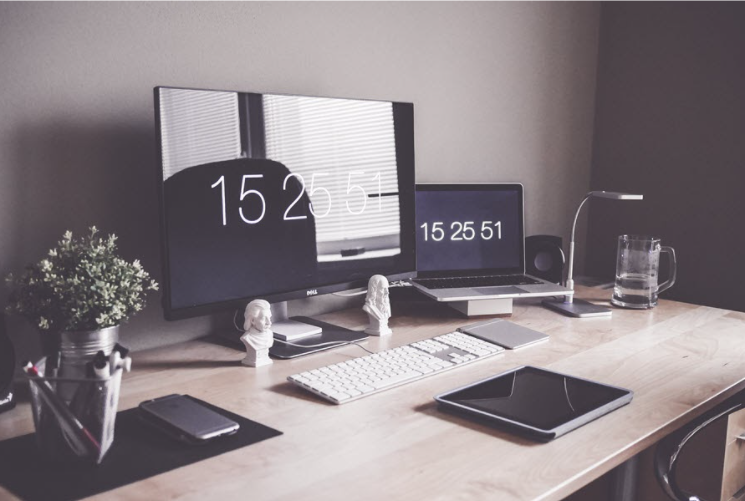Disclaimer: I am a consultant at Amazon Web Services, and this is my personal blog. The opinions expressed here are solely mine and do not reflect the views of Amazon Web Services (AWS). Any statements made should not be considered official endorsements or statements by AWS.
With a lot of options available in the market, making a decision over buying a computer or a laptop becomes even more complex. Though it depends upon your work needs and personal preferences, the attributes like display, portability, storage, or cost, play their part in making the right decision.
Both the categories, including laptops and desktop computers, come with several benefits. Desktops are affordable but not portable. Then again, they are highly upgradeable. The type of computer you need depends on the type of work you are involved in.
For a high-end task like coding, you will need higher specifications such as huge storage and tremendous memory. This is particularly the case if you need to run demanding resources. Not to mention other tasks that burden the device, such as screen sharing or running background processes.
Let’s go through all the factors that you should consider while purchasing your computer.

If you are a programmer, this is something that comes to your mind, and you think of investing in the best one available in the market. If the processor is good, you will be able to handle resource-heavy tasks without encountering performance lags.
When it comes to comparing laptops and computers based on their processing power, the latter offers relatively higher performance. Though laptops work efficiently, the processor size, processing speed, and power consumption make a huge difference.
Although you should buy a computer with at least 256 GB storage, programmers may need a little more than that or maybe double than that. This much storage is a standard with the availability of too many apps available today, which only consumes space on the hard drive.
When it comes to storage, desktops seem to be a better option as you can scale such specifications quite easily if you need more storage. You can add more hard drives or solid-state drives to your desktop computer quite easily, while it may be difficult for you to manage storage on a laptop due to its delicate nature.

If you are among the users who consider speed over storage, go for a higher RAM. Even if your computer is equipped with a 500 GB SSD, it will not give you the level of performance that a laptop integrated with 8 GB RAM can deliver.
Whether you are buying a laptop or a computer, make sure you have the option to add more RAM when required. Your workload will continue to increase in the future so focus on buying an upgradable laptop or desktop for better performance.
If you need portability, nothing can beat the comfort that laptops provide, as you can carry them anywhere you go. They are compact and lighter and allow you to work from wherever you are - at the airport, in a cafe, at a restaurant, or at home.
Laptops are portable, so if you are someone who keeps on moving from one place to another due to work commitments, invest in these compact devices. No need to mention, you can carry your desktop along with you when you need to work on the go.
Most of you must know that you can purchase a high-end desktop computer at the same price at which you can buy a starting-range laptop. Then comes the upgrade cost, which is again higher in comparison to upgrading a desktop.
If you do not bother spending money, a laptop can be the best option, but if you have budget constraints, you should go with a desktop. Considering cost and maintenance factors, desktops are the option for programmers who need to work day and night on computers.

If you live in an area where power cuts are common, you should buy a laptop as it can give you a good power backup. Moreover, you can continue working for hours at locations where power sockets are not available nearby, considering your laptop has good battery life.
If you buy a desktop, you will not be able to continue your work at times when there is no power supply. Though this may not be a challenge for many, most of us have to consider this factor at the time of purchase, if you do not want to lose your unsaved data due to sudden power cuts, particularly when you don’t have a backup.
For programmers and other professionals involved in intense work tasks, buying a laptop will restrict you to a 17 inches (maximum) screen. Of course, you can connect an external display via HDMI and VGA ports, but it will add to the cost.
With a desktop, you have the option to select any screen size as per your preference. Having a big screen will enable you to work comfortably. Make sure to buy an HD screen to get a better resolution and quality.

